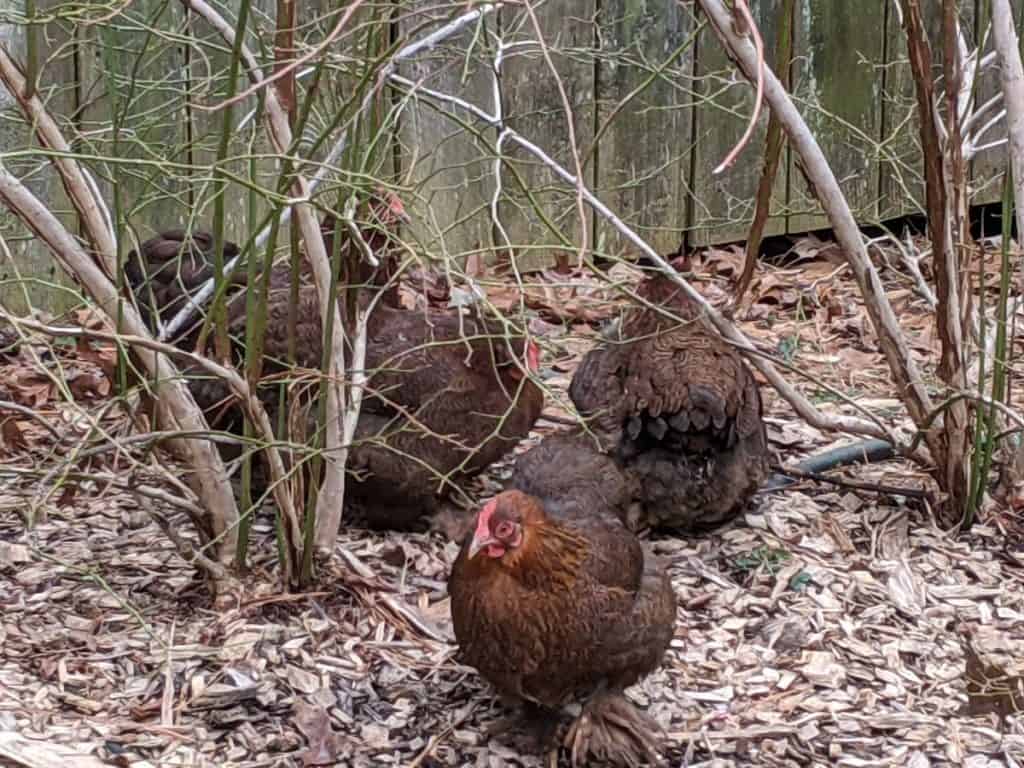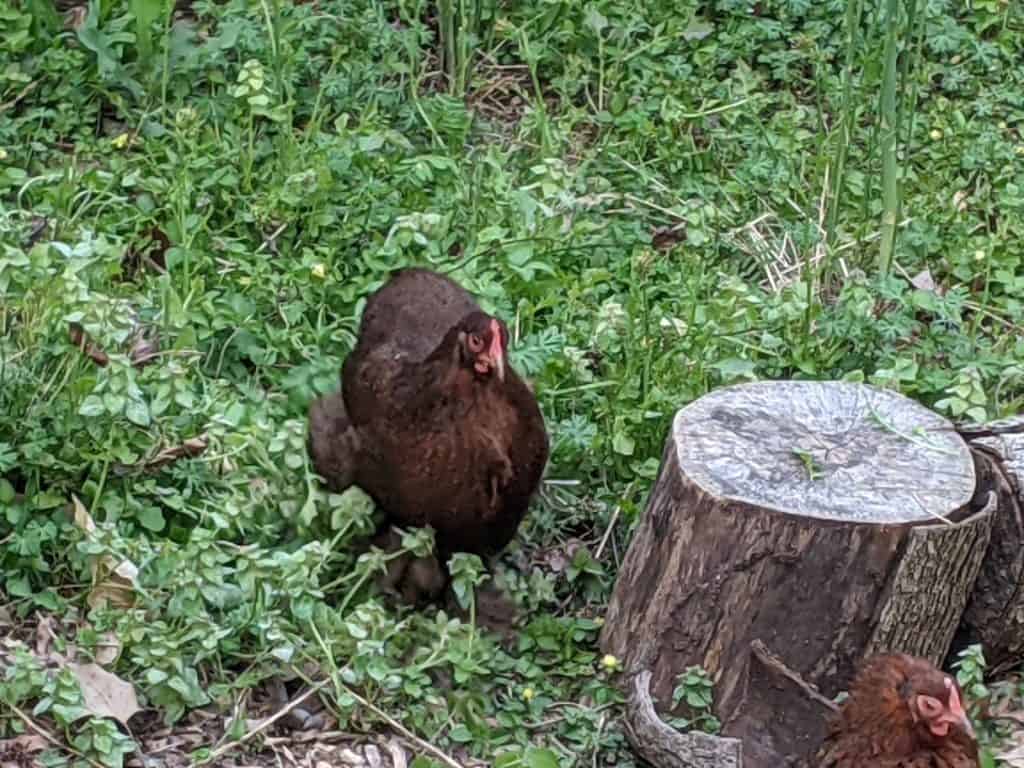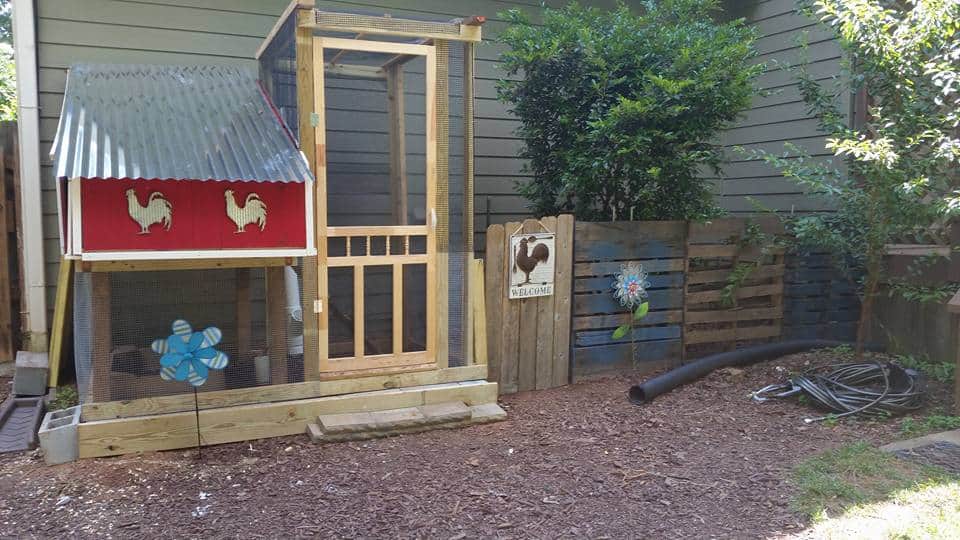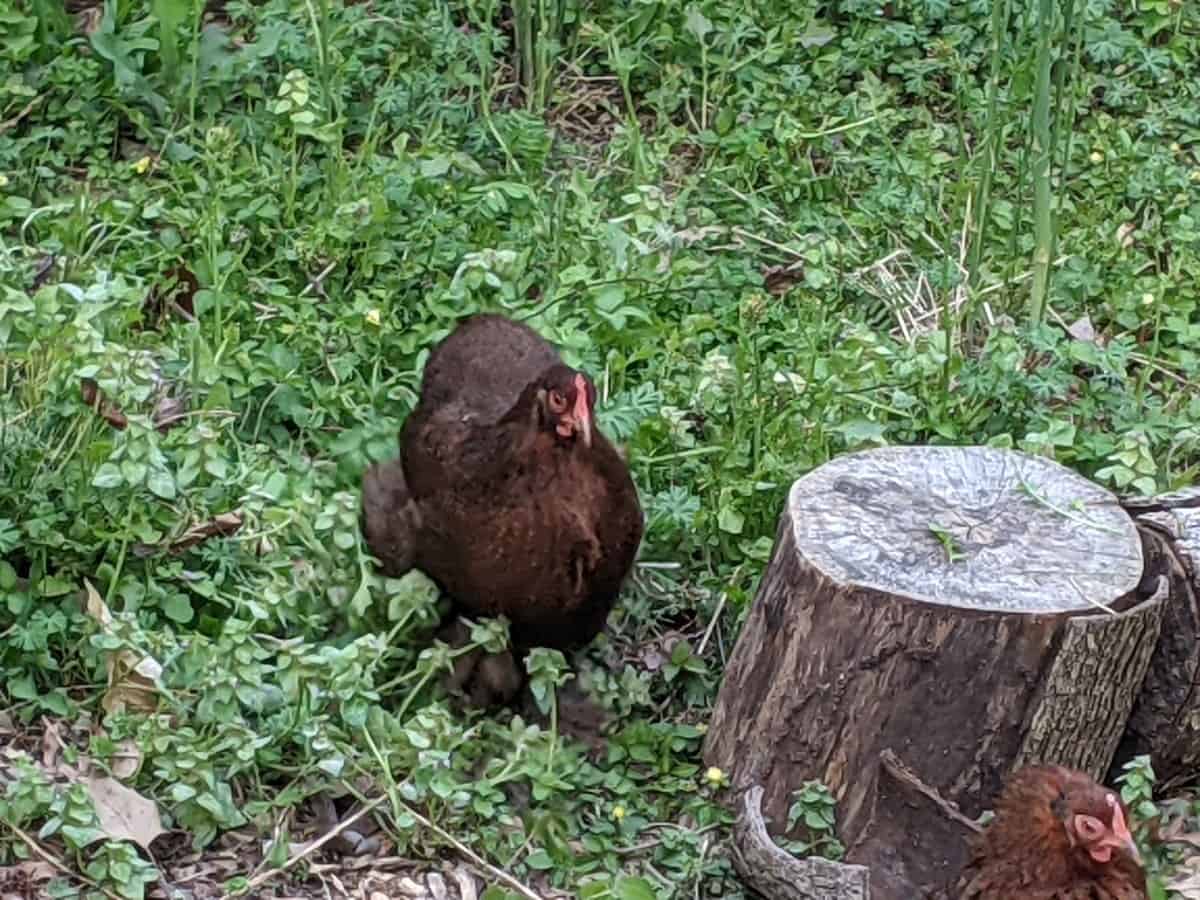Bantam chickens’ small size and fluffy plumage make them utterly adorable. It does not take long to fall in love with these endearing little birds. The first thing I wanted to know when we got our Bantam hens was how long we could expect our new, tiny, feathered friends to be in our life for.
Bantam chickens generally live for between 4 and 8 years but can live for 10 to 15 years if they are very well cared for. Overall, their life expectancy is lower than regular chicken’s. Breed, diet, environment, housing, and veterinary care are factors that affect their lifespan.
Most farmers keep chickens for what they produce – their eggs and meat. As a backyard Bantam chicken keeper like myself, you might view them a bit differently. Bantams start laying eggs when they are 3 to 4 months old. Their egg production peaks at two years of age, and that is generally when farmers would cull them for meat.
We have grown very attached to our Bantam hens, and even though they are not laying as many eggs as when they were younger, we take the best care of them possible so that they can live long, happy lives with us. The famous chicken, Matilda, who holds the World Record for being the oldest chicken, lived to 16!
- Factors influencing the life expectancy of a Bantam
- Which Bantam breeds live the longest?
- Choose the right Bantam for your area
- How food and water affect Bantam’s life expectancy
- Give your chickens a safe home
- Preventing and treating diseases and parasites
- What is the productive lifespan of a Bantam chicken?
- Meet Matilda: The 16-year-old chicken!
- Conclusion

Factors influencing the life expectancy of a Bantam
Chickens are highly domesticated animals and rely primarily on us to keep them alive. One of the most common reasons for chickens not making it to a ripe old age is predators. There is a range of factors that determine how long a chicken will live for:
- Breed/type of Bantam. There are different types and breeds of Bantam chickens, and there is variation in life expectancy among them.
- Food. Bantams live longer when they eat a high-quality diet.
- Water. Providing clean drinking water every day is essential for chickens.
- Housing. It is vital to keep your chicken coop clean and predator-proof.
- Environment. Cooped chickens do not live as long as pastured or free-roaming chickens. Weather conditions, such as extreme cold or heat, can shorten their lifespan.
- Diseases and parasites. The most common reason that chickens die is of illnesses caused by bacteria or viruses and parasites (like mites).
Which Bantam breeds live the longest?
There are three different categories of Bantam breeds:
- True Bantam. These breeds have not been developed by humans and originate from small chickens that sailors came across in Banten (also written as Bantam), Indonesia. This is where the name Bantam comes from.
- Miniaturized Bantam. These are mini versions of standard chicken breeds. They’re half to a third of regular chickens’ size and were developed by selective breeding over time.
- Developed Bantam. These are breeds that have been developed by crossing many different species of Bantam.
True and miniature Bantam breeds are more genetically robust and generally live longer than developed breeds. For example, the Cornish Cross breed was developed to grow extremely quickly to be harvested for meat at only 10 weeks old!
These birds do not live very long and develop liver and heart problems within their first six months. Many also don’t grow feathers all over their body.
Choose the right Bantam for your area
The key to keeping chickens that live long is choosing the right breed for your conditions and taking great care of them. Choose a Bantam chicken breed that will tolerate the climate in which you live. If you live in an area where winters get very cold, choose cold-hardy breeds like Orpingtons, Sussex, or Cochins, as they will live longer.
Wyandottes cannot handle extreme heat, so they will not live very long in areas with scorching summers. Silkies and Australorps are very heat tolerant Bantam breeds.
Some breeds are savvier than others and are better at hiding when they see a bird of prey overhead or not straying too far from the rest of the flock. If you live in a place where hawks are common, choose breeds that are duller brown in color because they are less noticeable to predators than white breeds.

How food and water affect Bantam’s life expectancy
In the “old days”, it was customary to let chickens forage for their food on their own and to supplement their diet with kitchen scraps. We now know that feeding chickens good-quality poultry feed will keep them healthier and happier.
You should feed them scratch grains, laying mash and calcite supplements, like crushed oyster shells, if they are laying hens along with appropriate kitchen scraps.
Bantams need a lot less food than regular chickens, eating about one pound of food per month. Overfeeding can cause health problems or even sudden death, so do be mindful of this.
Ensuring your Bantams have access to a clean water supply is vital. When using a bottle watering system, you need to clean it at least once a week.
Garden Birds and other wild species also drink from these water bottles and may bring bacteria or viruses. Bacteria will grow in any water container over time, so they need to be kept scrupulously clean.

Give your chickens a safe home
Dogs, cats, hawks, owls, foxes, badgers, weasels, rats, raccoons, and many more neighborhood creatures will gladly make a snack of your backyard Bantams. Ensure that they have a warm, dry, and highly secure coop where they can roost at night.
It must have a covered top, and you should either dig the sides deep into the ground or close the bottom to prevent burrowing predators from getting in.
As much as you want to protect them, you can’t keep your Bantams cooped up for their whole life. They will live longer, happier lives if they can roam around outdoors. Provide lots of hiding places for your chickens all around the garden so that they can escape from predators.
Bantams are also great to keep in a chicken tractor because of their small size. This will still allow them to be pastured during the day but keeps them out of harm’s way.
Preventing and treating diseases and parasites
Keeping a clean coop and providing basic medical care to your chickens will ensure they live for as long as possible. Many Bantam breeds have dense feathering on their legs and feet. They are prone to get encrusted with mud and feces, which is a recipe for infection. Chickens get bumblefoot, which is a type of staph infection.
Cover muddy areas in their coop, run, and garden with small pebbles and mulch to dry them out. If mucky feet are a big problem, one can give chickens a foot bath, standing them in shallow, warm water and massaging the dirt away.
Bantam’s foot feathers are pretty delicate and can easily break, causing quite a lot of bleeding. Clean the area, pat on baking soda, and apply firm pressure to stop the bleeding.
Parasites, like scaly leg mites, also love hiding in Bantam’s fluffy pantaloons. Be sure to check for these regularly. Overall, it is a good idea to handle your chickens often, checking their eyes, feet, combs and keeping an eye out for any lumps.
What is the productive lifespan of a Bantam chicken?
People who farm chickens for meat or eggs are interested in their productive life span. Bantams start producing eggs anywhere between 3 to 8 months of age. At 2 years, their egg production is at its peak. Their egg production will begin to taper off after 3 years, and they will stop laying eggs at 6 years of age.
Meet Matilda: The 16-year-old chicken!
One legendary hen, Matilda, is the World Record holder for being the oldest living chicken. Her loving owners, Donna and Keith Barton, took excellent care of her, keeping her indoors for her whole life. Matilda never laid any eggs. Veterinarians think this is the reason she was able to live for so long.
Conclusion
Bantam chickens usually live for 4 to 8 years, but they can live for 10 to 15 years if you take excellent care of them. Lifespans vary among the different Bantam breeds, but how long they live depends primarily on the standard of living we provide for them – their food, water, housing, and medical care.
Choose to keep Bantam breeds that are well adapted to the climatic conditions where you live. This will increase the chances of your bantams reaching their golden years!

